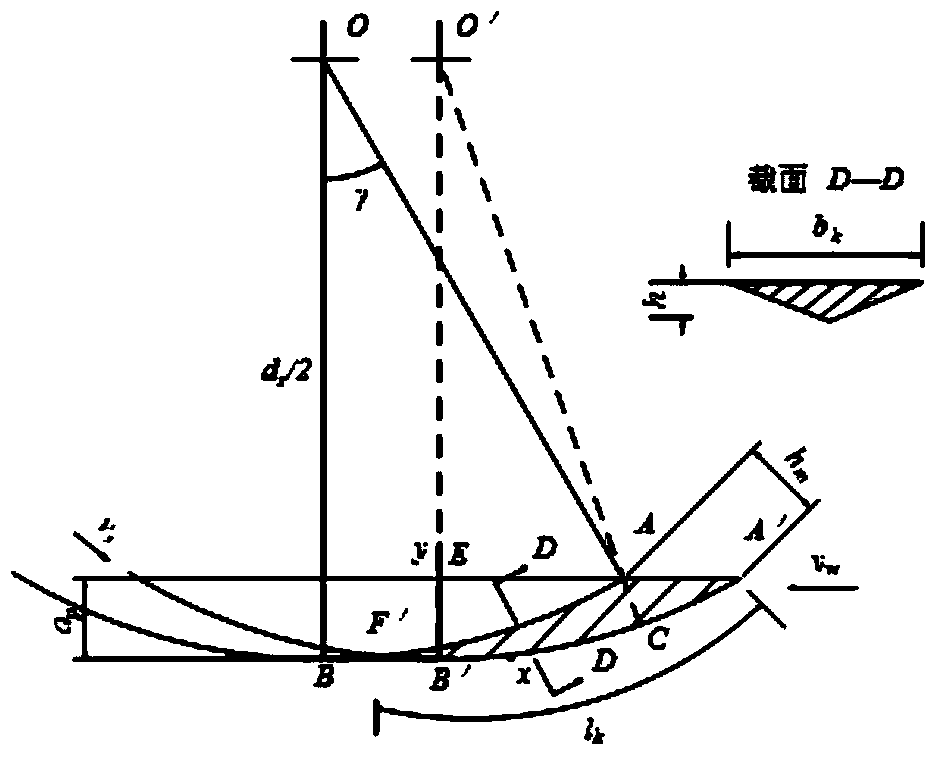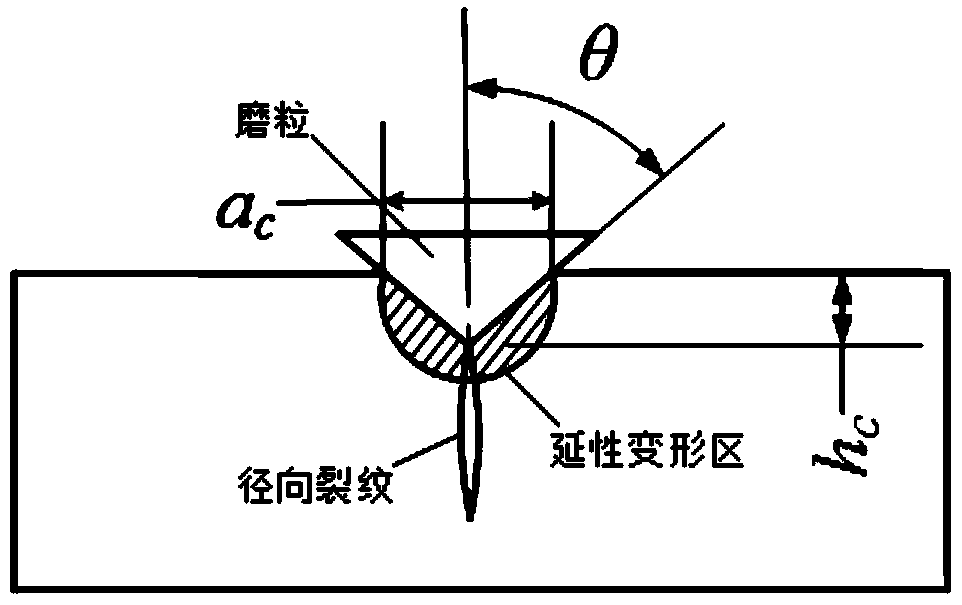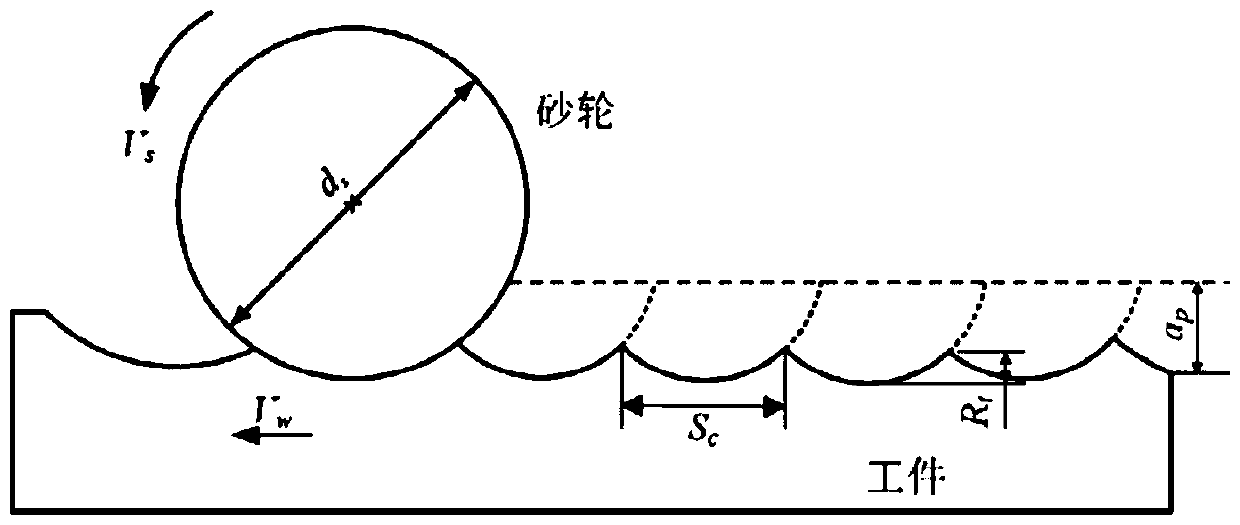A method for determining the surface roughness of glass-ceramic grinding
A glass-ceramic, surface roughness technology, applied in the field of engineering ceramics processing, can solve problems such as complex surface forming mechanism
- Summary
- Abstract
- Description
- Claims
- Application Information
AI Technical Summary
Problems solved by technology
Method used
Image
Examples
Embodiment
[0145] A method for determining the grinding surface roughness of glass-ceramics includes the following steps:
[0146] (1) According to the grinding processing conditions, the maximum undeformed chip thickness h is obtained by the following formula max :
[0147]
[0148] Where N d Is the effective number of abrasive particles per unit area, a p Is the grinding depth, d s Is the diameter of the grinding wheel;
[0149] (2) According to the material properties of glass-ceramics, the ductility-ductile brittleness critical depth h is obtained by the following formulas c1 And ductile brittleness-critical brittleness depth h c2 :
[0150]
[0151] Where η 1 Is the ductility domain coefficient, η 2 Is the extension-brittle domain coefficient, K d Is the dynamic change coefficient (commonly used coefficient, usually 0.3), K IC Is the fracture toughness, θ is the half angle of the cone tip of the abrasive grain, H is the microhardness, and E is the elastic modulus;
[0152] (3) According to ...
PUM
 Login to view more
Login to view more Abstract
Description
Claims
Application Information
 Login to view more
Login to view more - R&D Engineer
- R&D Manager
- IP Professional
- Industry Leading Data Capabilities
- Powerful AI technology
- Patent DNA Extraction
Browse by: Latest US Patents, China's latest patents, Technical Efficacy Thesaurus, Application Domain, Technology Topic.
© 2024 PatSnap. All rights reserved.Legal|Privacy policy|Modern Slavery Act Transparency Statement|Sitemap



